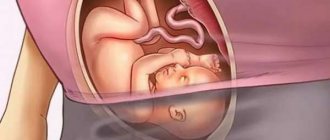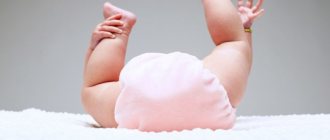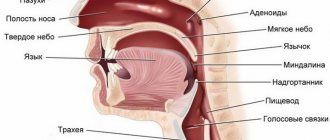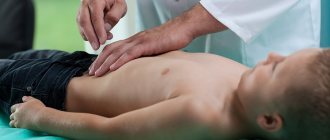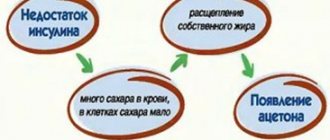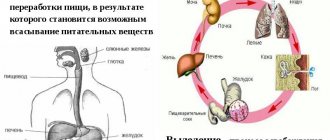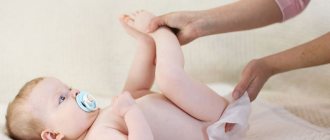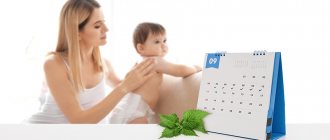In a family with a baby, parents carefully monitor its health, so such a physiological manifestation as hiccups in newborns causes them justifiable concern. Meanwhile, experts have proven that even an unborn baby can hiccup - for example, at six weeks the fetus already has hiccups. In infants, it appears very often, it can last a few minutes, or it can last for an hour or more, which causes discomfort in the child and interferes with falling asleep. In order to prevent hiccups from causing panic in mothers, you need to know the reasons for their occurrence and find ways to stop them in your baby.
How to get rid
The main thing that parents should understand is that there is no panic. General rules for feeding:
- Don't let your child eat too much;
- When feeding, the baby should be held almost vertically;
- Give your baby some warm water to improve digestion.
Make sure that the number of hiccups in your baby constantly decreases. The release of air from the stomach is a normal process, but for the first months of any person’s life, then attacks should decrease and practically disappear by the first year.
The baby hiccups in a cool room, do everything to keep him warm. Wrap him in another blanket, take him in your arms and warm him with the warmth of your body. If the hiccups started outside, where the atmospheric temperature is low, it is better to go home and not allow the baby to completely freeze.
In principle, if hiccups are not associated with any pathologies, then even changing the baby’s position will help get rid of it.
During feeding
To get rid of unpleasant symptoms, first of all, you should stop feeding. Lift your baby upright and hold him close to you. Most likely, he swallowed air or overdid it, that is, he was greedy.
https://youtu.be/PlDlDYuh_Ek
After the baby burps, he will immediately feel better and the hiccups will go away. Under no circumstances hold the baby horizontally; if his diaphragm contracts too much, then the food in the stomach puts pressure on it, and hiccups can last almost indefinitely.
If the baby is already more than 6 months old, you can give some water and a weak chamomile decoction.
Our ancestors knew how to help a child with hiccups - with a small amount of sugar. If the child is old enough, sugar can be placed under the tongue. When the baby is not yet able to digest solid food, you can dip the pacifier in sweet syrup and give it to the baby. Sugar helps relax the diaphragm.
Another way to stop hiccups in a newborn is massage. The child needs to be seated and rub the back from the lower back to the shoulders with light circular movements. The same can be done by placing the baby on his tummy. The main thing is to massage as gently as possible, without making any effort.
https://youtu.be/4ozMSTQTP34
If the cause of hiccups in a newborn has a nervous basis, then it is necessary to distract him with a toy, touch, or massage. You can observe which toy you like best and use it for each spasmodic compression of the diaphragm. If a child constantly hiccups, then dill water can help.
There is an opinion that dill normalizes the functioning of the gastrointestinal tract, although there is no scientific or medical evidence for this theory. However, reviews of dill water are excellent. Naturally, if you use dill for your baby, it is better to first consult with your pediatrician.
In a dream
If a baby has hiccups in his sleep, then there are many reasons for this condition: from problems with the digestive tract to hypothermia. Naturally, parents are concerned about what to do if their newborn has hiccups, especially if he is sleeping.
Interesting! How to get rid of hiccups - why this happens, possible diseases
If there are no other alarming symptoms, then you should not wake the baby. You should check your hands to see if they are cold, and see if milk is flowing out of your mouth. If these factors exist, then they need to be eliminated immediately.
Air in the digestive system
As a rule, the reason for this is the peculiarities of the digestive system of newborn babies. The walls of their stomach and digestive tract are still thin, easily stretched and often press on the vagus nerve when bloated or overeating.
But the most common cause of hiccups in small infants is considered to be air entering the stomach due to improper breastfeeding. In this case, the contraction of the diaphragm is a purely physiological reaction of the body, helping to burp it. If this does not happen, regurgitation or colic may occur if gas enters the intestines.
Causes
Hiccups in infants are associated with a sudden closure of the respiratory tract, convulsions appear, repeating with a certain frequency. Hiccups are more common in children than in adults, and most likely, hiccups in newborn babies have physiological causes.
Binge eating
If the mother does not control the amount the baby eats, then it is possible that an excessive amount of milk or formula will put pressure on the diaphragm, and then the baby begins to hiccup. Pediatricians always recommend feeding the baby no more than every 1.5-2 hours, but if the baby eats for more than 20 minutes, then the process must be interrupted.
https://youtu.be/nc6yKPhz2Kk
The main thing is not to overdo it and not take too long breaks between meals. As a rule, after six months everything gets better, the number of attacks decreases. If the hiccups continue to bother you, then the baby probably eats too quickly, or the parents add a lot of dry foods to the diet.
Excess air
If your baby hiccups, it is possible that in the process of swallowing food he takes in too much air, which accumulates in the stomach and over time moves up and out. In this case, the mother should adhere to some rules:
- learn how to properly apply to the breast, hold the baby almost vertically and try to ensure that he captures the entire areola of the nipple with his mouth;
- the selection of a feeding bottle must be individual and careful, the same requirements for the nipple; ideally, when turning the bottle over, several drops per second should flow out of the nipple;
- After feeding, the baby must be held in an upright position for at least 5 minutes, then excess air bubbles from the stomach will come out naturally.
Excessive accumulation of gases
In a newborn, hiccups may occur due to excess gases that accumulate in the upper intestines. Flatulence in a baby is most often the result of a nursing mother not following a diet, that is, consuming non-recommended foods, corn, legumes, carbonated drinks, whole milk and fresh fruits. In cases where bloating and flatulence are observed in the baby after the mixture, it is better to consult a pediatrician.
Hypothermia
Oddly enough, a drop in ambient temperature can cause hiccups in newborns. If it is too cold, the vagus nerve, which runs near the thoracic peritoneum, is irritated, resulting in a spasm of the diaphragm. The baby may freeze in a house where it is not too warm, or while out for a walk. The easiest way is to dress the baby warmly, take him in your arms and warm him with your warmth.
Stress
Naturally, children do not suffer from depression, but it is quite easy to scare them. This could be the loud sounds of a vacuum cleaner, the sudden switching on of bright lights, or a sudden change in the usual environment. If such factors cause your newborn to hiccup frequently, simply remove the irritating factors, pick him up, sing a song and calm him down.
Lack of fluid
It is possible that the baby does not have enough water, he is tormented by thirst, which appears due to the drying out of the mucous membrane in the oral cavity.
Unclean air
If your baby is hiccupping, there may be irritants in the air. The respiratory system of babies is much more sensitive than that of adults; any pollution, fumes or too intense aroma can cause not only a cough, but also hiccups.
Interesting! How to rid a baby of hiccups: types of attacks and causes
Hypertonicity
With physiological hypertonicity, which usually lasts 3 months from the moment of birth, all muscles are constantly tense, even when the child is calm. Any irritant causes even stronger tension, including spasmodic contraction of the diaphragm. Hiccups can start even while changing clothes.
Usually mothers do not know what to do if the child hiccups and simply wrap the baby up. In fact, short-term hypothermia is even beneficial, since the baby’s body adapts to the environment at such moments.
Laughter
Often, after laughing, a child begins to hiccup. This is due to the fact that sharp sighs compress the vagus nerve, which “signals” the diaphragm to begin contracting.
The main goal of parents in such a situation is to free the newborn baby from spasm and relax the vagus nerve. The baby can be laid horizontally and stretched a little or given water.
Helminths
If there are helminthic infestations in the body of a newborn child, the body may react to their presence with hiccups. In this case, compression of the diaphragm can last more than 10 minutes and several times a day.
What to do if a newborn hiccups after feeding?
If overeating occurs and the newborn hiccups after feeding, then the mothers themselves are to blame, especially young ones who do not yet have sufficient experience in caring for children. They often worry about the amount of milk sucked and feed the baby - this action provokes pressure on the diaphragm. When a baby is overeating, it is not difficult for the mother to determine; for this, nutrition control can be introduced - for example, changing the volume of milk or formula in subsequent feedings. In order to eliminate overeating, you need to use preventive measures:
- There is a lot of debate in pediatrics about whether it is best to feed a child on demand or by the hour. It has already been established that infants from mothers who feed by the hour overeat. This is explained by the fact that the child has a small stomach volume and a portion of milk is only enough for a short time. It is very difficult for the baby to wait for the next meal, so he is hungry while sucking. The baby begins to greedily suckle at the breast, resulting in an overload of the baby's stomach with a large volume of food. In this case, the newborn hiccups after feeding.
- You also need to take into account that breast milk is conventionally divided into two types: front and rear. Experts note that the rear has a higher fat content, and this is what the baby can get enough of. In a mother who has a lot of milk, the baby quickly becomes saturated with the front, and then only with the rear, which is more saturated. It turns out that by the end of feeding the baby is already full.
- In infants up to 3 months of age, gas accumulation is observed in the intestines. This occurs due to the underdevelopment of the gastrointestinal tract, so babies may have colic, which causes hiccups (we recommend reading: at what age do babies develop colic?). A mother can easily determine whether her baby has colic, since at this moment he is restless, tries to raise his legs, his tummy is elastic, even hard (we recommend reading: what is the diet of a nursing mother if her baby has colic?).
Pathological factors
Hiccups in infants can be a harbinger of diseases that have already begun to develop. If a child, along with spasms of the diaphragm, experiences constant regurgitation, the baby behaves fussily, is nervous and whines, is periodically tormented by a cough, hyperthermia - these are bad signs.
https://youtu.be/AHXEyQ86GrU
Such symptoms are characteristic of many pathological changes; it is possible that the baby has:
- inflammatory process in the lungs;
- a tumor develops in the brain or lungs;
- infectious diseases: from measles to toxoplasmosis;
- gastroesophageal reflux;
- the diaphragm is damaged.
As a rule, if there is a suspicion why newborns often hiccup, and it seems that there are problems with the gastrointestinal tract, then in addition to spasms of the diaphragm, other symptoms are possible:
- vomiting, almost like a fountain;
- pain in the stomach;
- bloating;
- excessive discharge of gases;
- constipation or, conversely, diarrhea;
- the baby may refuse food.
But only a doctor can refute or confirm suspicions and only after a series of examinations, so if you have such symptoms, you should immediately contact your pediatrician.
A child may also hiccup due to allergies. As a rule, the main irritants are proteins, which can be in milk or formulas, causing an inflammatory process in the esophagus, causing the diaphragm to spasm.
No matter how scary it may sound, hiccups may be evidence that the baby is developing more terrible pathologies than stomach problems. Hiccups can be of central origin, that is, appear against the background of damage to the central nervous system and be a confirmation of perinatal damage or a symptom of an abnormal development of the spinal cord or brain.
Peripheral hiccups occur when the phrenic nerve and branches are involved in the pathological process. This condition can be observed against the background of congenital tumors or with an aortic aneurysm.
Referred hiccups can confirm the diagnosis of a diaphragmatic hernia. Against the background of complications after viral infections, the appearance of this form of hiccups is also possible.
There are many other reasons why a child hiccups; it is possible that he has a chest injury, or a damaged spinal cord, or birth injuries.
What to do if hiccups appear in newborns and are presumably a consequence of the development of the disease? Naturally, consult a doctor immediately. In this case, there can be no talk of any self-medication.
Prevention
Under any circumstances, it is better to prevent an unpleasant condition than to fight it later, and not to think about what to do if a child hiccups.
Interesting! What to do to stop hiccups - the best ways
If your baby often hiccups, then most likely you need to change your feeding style. There is no need to try to fill your child’s stomach as much as possible in one meal. A large amount of food will definitely irritate the stomach and diaphragm.
It is imperative that when feeding, whether breastfeeding or bottle-feeding, the baby should be at an angle of 35-45 degrees. This position of the body will allow food to go directly into the esophagus and avoid attacks of hiccups in the baby. When the baby can already sit, at first hold his back while eating so that less air enters the stomach.
Wash the nipple and bottle thoroughly after feeding to prevent food residues from accumulating there, which will cause the baby to swallow a lot of air during subsequent feedings.
Never let your baby fall asleep with a bottle in his mouth. Unlike the breast, food constantly flows from a filled bottle, and milk is released from the breast only when sucking. This is not only the reason why a child often hiccups, but also a threat to life, since the baby may choke.
Don't rush to invite guests into your home to show off your newborn. Babies are very shy and in large crowds of people they get nervous and begin to hiccup. If relatives do come, then it is better to hold the baby close until he calms down and stops being afraid of the people around him.
With increased excitability
Little ones are very impressionable, and sometimes it is emotional shock that causes contractions of the diaphragm. To help the baby, you need to remove the irritant. It could be many things: too harsh a light, a loud sound, an unexpected touch, fright. In general, this can be any stressful situation; for some babies, even strangers are such a factor.
To stop hiccups, it would be a good idea to talk to your child in a whisper and explain to him everything that, in your opinion, he may not understand. Also, doctors recommend not to show the baby to a large number of people at first, because this can cause the baby to become confused and also get emotional stress.
Contraindications
Regardless of the reasons why your baby hiccups frequently, never frighten him. This method is suitable for adults, and loud clapping of your hands will not only scare the baby, but can also damage very thin eardrums.
You should not use sour candies to get rid of hiccups, even if your toddler has already reached 1 year of age. Most often, sweets have a powdery consistency, dyes and preservatives, which can adversely affect the child’s digestive tract.
Never hit your baby hard on the back; the skeleton and bones at an early age are still soft and can be easily damaged.
When to see a doctor
Most often, hiccups in a baby are a temporary phenomenon that should not cause concern. If compression of the diaphragm occurs several times a day and does not last long, and the baby’s behavior is still cheerful, then there is no need to worry. If the condition lasts for an abnormally long time, the child is nervous and fussing, and attacks of hiccups are repeated frequently, then this is a reason to urgently contact a medical facility.
You can assume that a child has gastroesophageal reflux not only by frequent hiccups, but also by constant regurgitation of small amounts of water. The toddler may arch his back, get irritated by familiar things, and cry often.
When a newborn hiccups and this interferes with sleep and feeding, it is better to consult a doctor; perhaps the baby is developing some kind of disease that is better treated at an early stage. The whistling sound during hiccups is also an alarm bell.
You should contact a specialist if parents have taken all measures to eliminate the causes of spasmodic contraction of the diaphragm, but they have not given the desired effect. You may need to consult a neurologist to rule out problems with the brain and spinal cord.
In case of hypothermia
One of the most common causes of this phenomenon in children is hypothermia. If the baby is cold, his muscles begin to contract, which is quite natural. This can happen if a window is open in the room or the air conditioner is turned on, or if the baby is not dressed for the weather. To clarify the situation, touch the baby by the elbows or knees to check if he is cold.
One of the most common causes of hiccups is hypothermia. If the baby is not dressed exactly for the weather, or the room where he is is cool, the air conditioner is turned on, the window is open, etc., the baby freezes, his muscles begin to contract, which, of course, is natural.
To find out, just touch the child’s elbows, knees or neck area. How to stop hiccups, the cause of which is actually hypothermia? To save the baby from this problem, it is enough to warm him up and not make such a mistake in the future.
Periodic hiccups in babies are completely normal and most often stop quickly without causing any particular concern. However, there are situations when hiccups are a harbinger of disease.
